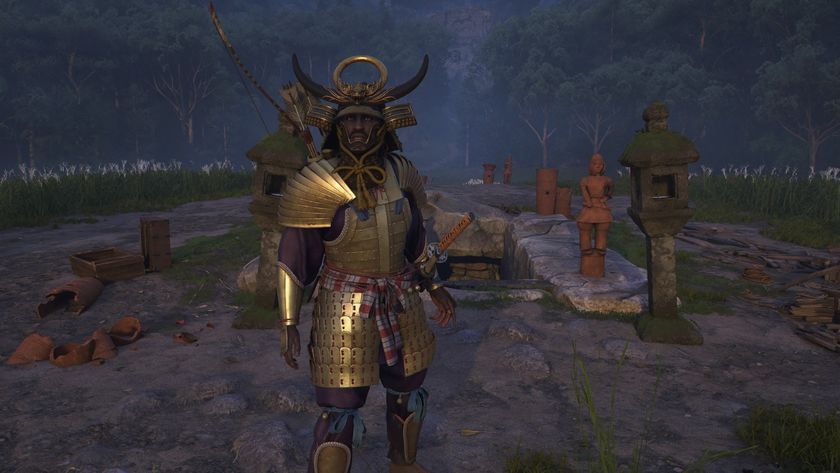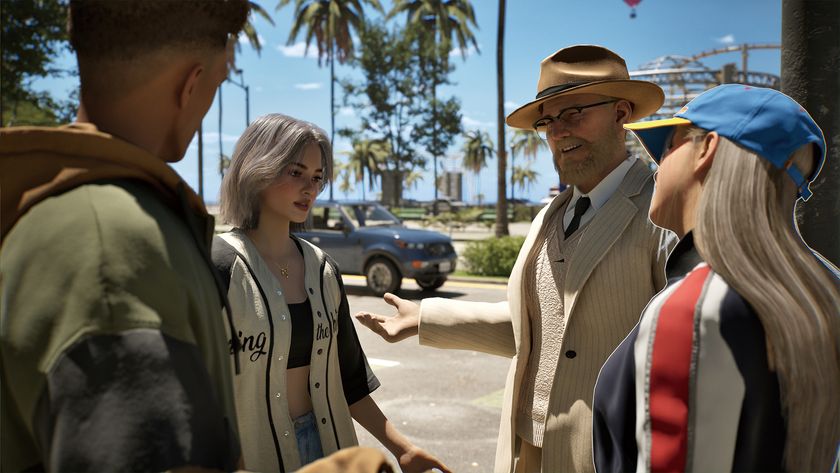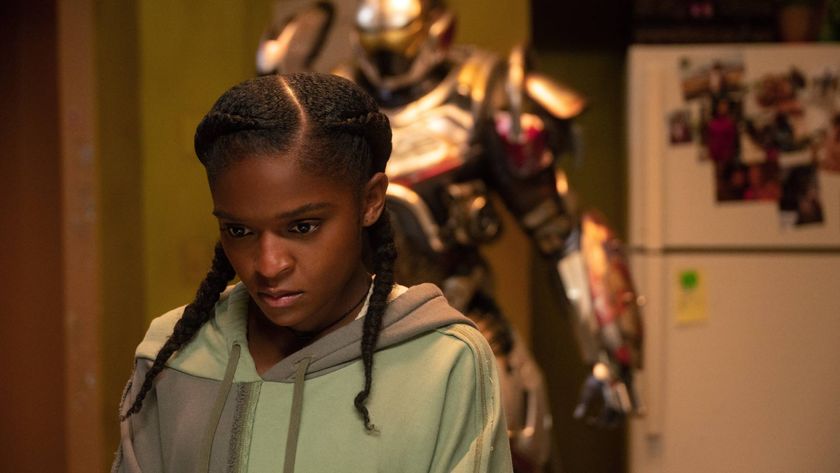The best ways to play Final Fantasy 1 through 12
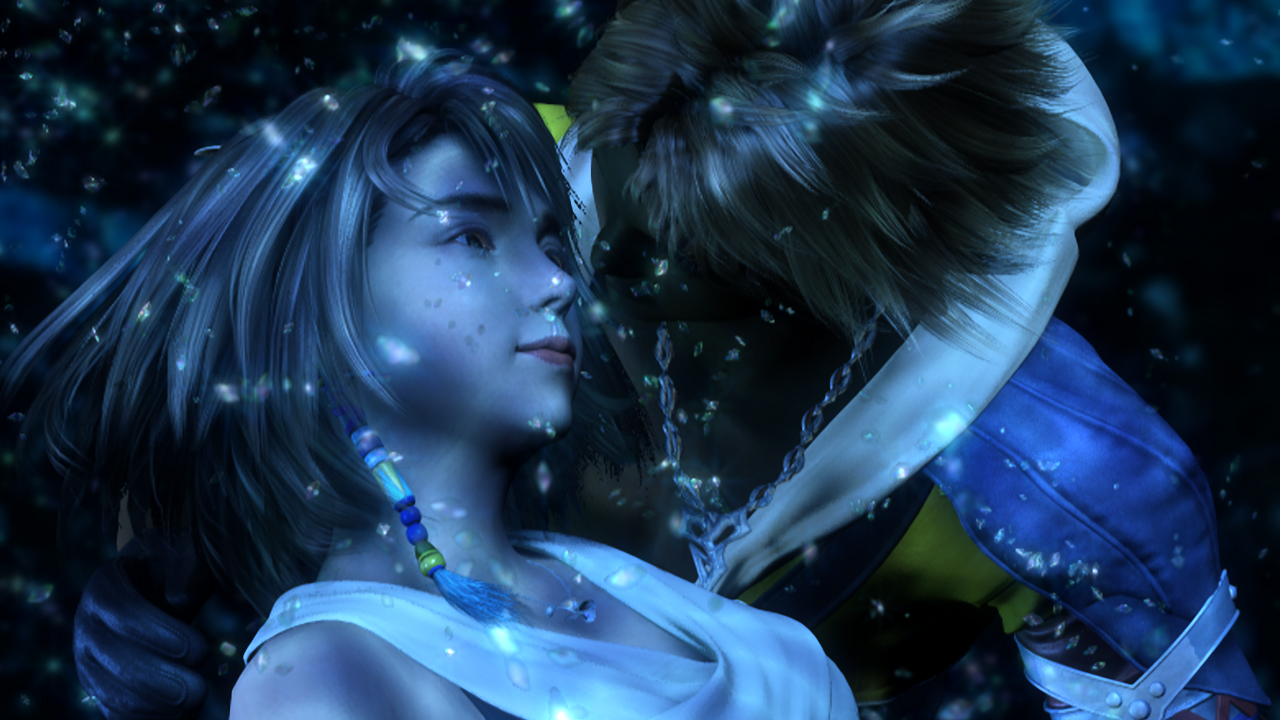
There are a lot of Final Fantasy games and knowing the best ways to play them can really help you understand the franchise and enjoy all its colorful characters. However, with 15 main, numbered entries in the loosely connected series, dozens more spin-offs, and countless rereleases, Final Fantasy is a bit of daunting franchise to get through. These experimental JRPGs that fuse traditional fantasy tropes with a combination of science-fiction, steampunk, cyberpunk, and whatever the hell blitzball is, have all been remastered and remade several times throughout the years.
If you want to go back and play an older entry in the series, the nature of putting classic games on new platforms makes navigating the sea of updated releases way more confusing than it needs to be. Which of the half-dozen versions of the original Final Fantasy is the one you should play? Did the bugs ever get worked out of the PS4 version of Final Fantasy 10? Should you play Final Fantasy 7 Remake? We've whipped up a guide showcasing the best ways to play each of the main entries of the series, along with any additional features and fixes that make them worthwhile.
Final Fantasy
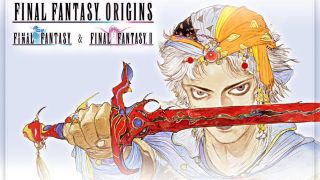
The definitive version: Final Fantasy Origins (PS1) It's the perfect blend of classic difficulty and modern presentation. Unlike other remakes, Origins remains faithful to its namesake by retaining FF's unique spell system and difficulty curve. Should you find the game too tough, there's also the option for easy mode (which is made mandatory in later remakes). Origins also has redrawn sprites, a remixed soundtrack, a revised script, and some bug fixes that together make it a clear upgrade to the NES classic. And, because Origins was released on PSN in 2011, the game is very easy to find and play on your PS3 or Vita.
What about the rest? Final Fantasy 1 & 2: Dawn of Souls (GBA) and Final Fantasy (PSP/Mobile) are both solid remakes with all the updates found in the PS1 version, plus some new dungeons and other extras. But they also replace FF's spell system with an MP-based magic system, and reduce the difficulty across the board. Considering the original FF is already light on plot and characterization, challenging combat should be the game's main attraction. Plus, neither of these remakes have been released on other platforms, making them difficult to enjoy on modern hardware. If you're looking for the original, unadulterated game, you can pick it up on the Wii Virtual Console (which is also buried inside your Wii U's Wii mode), or as a built-in game on the NES Classic (good luck finding one of those, though).
Final Fantasy 2
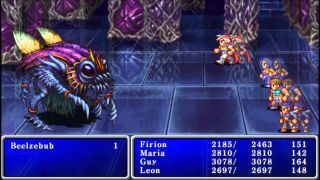
The definitive version: Final Fantasy 2 Anniversary Edition (PSP/Mobile) Final Fantasy 2 is widely considered the worst in the series because of an asinine upgrade system that requires you to perform actions repeatedly to grow stronger - which sounds neat in theory, until you realize that the way you increase your health is by getting hit a whole bunch. As such, the best version is perhaps the one furthest from its source material. This remake takes the best from the previous two remakes - improved visuals and remixed soundtrack from Origins; bonus quests and dungeons from Dawn of Souls - and combines them with even more new content. And while Anniversary Edition is a bit easier than its originator, it works in the game's favor here, as FF2's battle system is notoriously tedious and frustrating.
What about the rest? Final Fantasy 1 & 2: Dawn of Souls (GBA) and Final Fantasy Origins (PS1) are both perfectly acceptable remakes as well. As I mentioned before, the GBA remake doesn't have all the bells and whistles of the PSP version, but it still has more content and is slightly easier than the Origins version which closely resembles the original game.
Final Fantasy 3
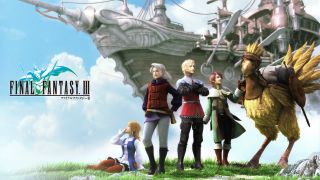
The definitive version: Final Fantasy 3 (DS/PSP/PC/Mobile) As this is the only official English version of the game available in the West, it's the winner by default. Thankfully, it's also an excellent remake. The original game has been completely rebuilt using vibrant 3D graphics along with a freshly remixed soundtrack. The basics remain intact - plot, dungeons, bone-crushing difficulty - along with some minor tweaks that help smooth out some of the original's rough edges, such as making more character classes viable during the endgame. This remake is available on DS, PSN (for PSP and Vita), Steam, and more, making it widely accessible.
Sign up to the 12DOVE Newsletter
Weekly digests, tales from the communities you love, and more
What about the rest? Well, the only other version of Final Fantasy 3 is the original, released on the Famicom in 1990 and available exclusively in Japan. And I have no idea how you might acquire a copy, so I won't even speculate. But if you did, you would find that FF3 holds up surprisingly well. Sure the characters have zero personality and the plot is all over the place, but it's fun learning (and exploiting) the quirks of this game, such as which jobs are horribly overpowered, and which are completely useless.
Final Fantasy 4
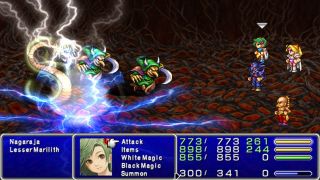
The definitive version: Final Fantasy 4: The Complete Collection (PSP) FF4 has a TON of different versions, and no two are exactly alike. The Complete Collection wins out by combining a fabulous remake of the original FF4, the lengthy post-game epilogue The After Years, and Interlude, an all-new tale that ties the previous two together. The game itself features updated visuals reminiscent of the original art style and an updated score. It also addresses the myriad issues plaguing FF4's original Western release, including missing spells, abilities, and censorship of certain images. It's also compatible with the Vita through PSN, so you don't have to break out your old hardware to play it.
What about the rest? Like FF3, this game also received a complete overhaul on DS simply called Final Fantasy 4. Cutesy 3D visuals, voice acting, and the divisive Augments mechanic give this remake a very different feel from the original game. This version is also available on mobile and PC. Also worth mentioning are Final Fantasy 4 Advance (GBA) and Final Fantasy Chronicles (PS1). Advance brings new content, updated visuals, and allows for party compositions that weren't previously available towards the end of the game; however, the North American release has bugs that were later fixed in the European version. Chronicles is a straight upgrade to the SNES release of FF4 for PlayStation, with a fixed translation and restored difficulty (though this version isn't available digitally on PSN). And lastly, you can grab the Wii Virtual Console release if you want the version of the game originally released in America in 1991, titled Final Fantasy 2.
Final Fantasy 5
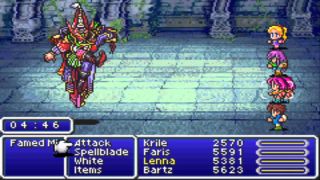
The definitive version: Final Fantasy 5 Advance (GBA) This is where the well of remakes and rereleases dries up. You only get two options when it comes to FF5, and the choice is obvious. Advance stays true to the style and spirit of the original, while sporting a revised script and new content. But most important are the four new Job classes - Gladiator, Cannoneer, Oracle, and Necromancer - which further enhance the game's already stellar class-switching mechanic. This version includes everything that was great about the original, plus a little extra.
What about the rest? The other version of FF5 available in the West is Final Fantasy Anthology on PS1, where it's bundled with Final Fantasy 6 (though both games are sold separately on PSN, because of course they are - but hey, you can play on PS3 or Vita if you like). Unfortunately, minor-but-annoying load times and awkward translations make this version inferior in almost every way save for the music, which sounds richer on PlayStation hardware. Also worth mentioning is the mobile release of FF5, which has a redrawn (and bizarrely out-of-place) art style that would later pollute FF6. Otherwise, the mobile port plays just like the GBA version and is also available on Steam.
Final Fantasy 6
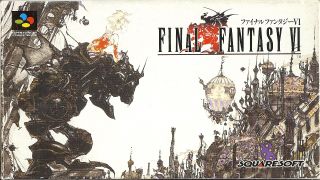
The definitive version: Final Fantasy 3 (SNES) If you've never played FF6 (which was released as FF3 on the SNES), start with the original. There's some '90s-era censorship goofiness in the game's translation and sprites - such as 'Holy' becoming 'Pearl' - but it's ultimately the most enjoyable version overall. As the SNES cart is pretty rare (and expensive), a better alternative might be the Wii Virtual Console. As for FF6's three remakes, each introduces some sort of problem not found in the original version that spoil the game in their own unique ways.
What about the rest? Despite being the best Final Fantasy game in existence, Final Fantasy 6 has yet to receive the definitive remake it deserves. Final Fantasy 6 Advance is the best attempt so far, with an updated translation as well as new dungeons and summons. However, a reduced screen resolution and poor audio compression hurt its overall presentation. By all means, stay away from the Final Fantasy Anthology (PS1/PSN) and any mobile versions of the game. Anthology introduces load times and slowdown during battles - which is inexcusable given this is a SNES game. Not to be outdone, the mobile remake (which is also currently available on PC) is a Frankenstein's monster of artistic styles - which is a shame, because it includes all the extras from FF6 Advance without any of the bugs.
Final Fantasy 7

The definitive version: Final Fantasy 7 (PS4) You can replay the classic that launched the series (and JRPGs as a whole) into the public consciousness on your PS4 - and it's easily the best of the game's small handful of rereleases. Not only do you get a tweaked English translation (no more "This guy are sick"), you also get a handful of new cheat functions that allow tourists the opportunity to blow through more laborious sections. With a push of a thumbstick you can turn off random encounters, jack up the game's speed, or give yourself full health and unlimited limit breaks during battle. Oh yeah, and there are trophies - now everyone in the world can know you went on that date with Barrett. Of course, Final Fantasy 7 Remake also exists, offering a super modernised version of the classic with a slightly different narrative to it.
What about the rest? The recent PC release of Final Fantasy 7 similarly includes the updated translation, along with a character booster that will blast your HP, MP, and Gil to their max limits, but lacks the individual cheats of the PS4 version (this is the version the iOS and Android ports are based on, too). If you scour eBay, you can find the original PC port (published by Eidos pre-Square Enix buyout), but getting it to run on your modern computer is up to you. And if you want the original PlayStation release, PSN will let you download it to your PS3 or Vita, but it doesn't feature any of the enhancements or slight graphical tweaks of the more modern ports.
Final Fantasy 8
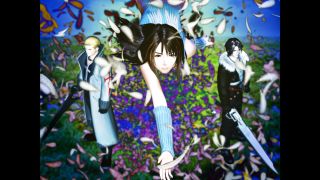
The definitive version: Final Fantasy 8 (PC) We don't talk a lot about PC games on GamesRadar, but the 2013 Steam release of Final Fantasy 8 deserves special mention. Not only has it specifically been updated to work on modern machines, but it arrives with a ton of special cheats and boosters that let you bypass its cumbersome Draw system by maxing out a bunch of your spells with the click of a button. On top of all that, though, is the most important addition: Chocobo World. See, Final Fantasy 8 was one of the only Western games to receive PocketStation support, a Sony-themed device that never actually made it out of Japan. With the PC version of FF8, now everyone has access to a little digital chocobo buddy that'll hunt for items while you leave your PC running.
What about the rest? There aren't a whole lot of other options out there for Final Fantasy 8 fans. There was the original PC port back in 2000 (made moot with the 2013 Steam release), and you can download the original PlayStation game on PSN to play on your PS3 or Vita. Here's hoping it comes to PS4 (and other platforms) eventually.
Final Fantasy 9
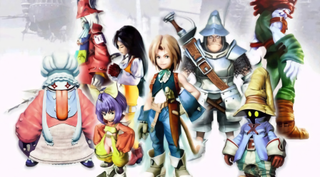
The definitive version: Final Fantasy 9 (PC) Like Final Fantasy 8, there aren't a ton of options available if you want to replay this fondly remembered classic. The best way right now is with the PC version, which includes a handful of boosters and cheat options, along with high-def cutscenes and character models. The pre-rendered backgrounds are still the same and look a bit blurry and washed out when compared to the newly-updated 3D models, but you'd get that regardless of the version you played. Even so, the core gameplay and plot have aged considerably well, and the PC version is a solid port.
What about the rest? The PC port also appeared on mobile devices with touch-specific controls and a condensed UI layout. While I prefer the PC's controller compatibility, the mobile version is a pretty good version if you prefer to use your tablet. If you want to play the original game, you can download it to your PS3 or Vita through PSN, but like FF8, it doesn't include any of the additions provided by the updated release.
Final Fantasy 10
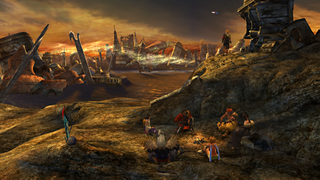
The definitive version: Final Fantasy 10/10-2 HD Remaster (PC) The PC version of Final Fantasy 10/10-2 HD Remaster came years after the others ports, and as such, the amount of features you get in it blow all the others out of the water. Not only do you get enhanced versions of the PS2 classic and its surprisingly entertaining sequel, you also get all of the extra difficulty modes and sphere grids from the Japanese 'International' version, as well as bonus cutscenes and radio dramas previously unavailable outside of promotional discs. On top of all that, the PC version includes 4K support, a handful of cheats similar to those in the FF7/8/9 PC releases, auto-saving, and the ability to skip cutscenes.
What about the rest? The HD remaster is also available on PS3, Vita, and PS4, and each version is identical in regards of gameplay content, minus the PC-exclusive features. The PS4 version runs at 60fps in 1080p, but also had a horrible RNG bug that basically ruined random battles and enemy AI. It's since been patched, but be forewarned that you'll need to update it if you want to play it on PS4 without issue. If you want to play the untouched original, though, you'll have to break out the PS2 and pick up an old copy, as it's the only way to experience the game as it was originally designed.
Final Fantasy 11

The definitive version: Final Fantasy 11: Ultimate Collection Seekers Edition (PC) Ok, it's probably kinda dumb to include this one because it's an MMORPG, but there are actually a few editions of FF11 out there that no longer work. If you want to play this (holy crap) still-running 15-year-old game, the best way to do it is by grabbing the Ultimate Collection on Steam. It includes the base game, all five expansions, and a ton of add-ons. Square Enix still seems keen on supporting it along with the newer Final Fantasy 14 MMO, but considering its age and the fact that Square is no longer producing new scenarios, there's no telling when it'll pull the plug, so caveat emptor.
What about the rest? Speaking of pulling the plug, don't bother getting the versions on PS2 and Xbox 360, as both have been officially shut down by Square. Apparently there's a mobile version of the game in the works, too - but it was supposed to be out last year, so who knows when it'll actually be released.
Final Fantasy 12
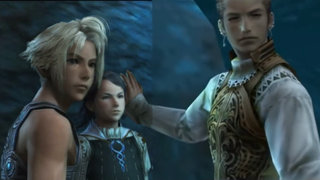
The definitive version (for now): Final Fantasy 12 (PS2) The only version of Final Fantasy 12 officially available as of this writing is the original PS2 disc released back in 2006. There's no digital copy, no PC version, no HD remaster - yet. In July 2017, Final Fantasy 12 is getting an HD overhaul for PS4. Called Final Fantasy 12: The Zodiac Age, this update should bring improved graphics, a re-recorded soundtrack, enhanced performance, and many of the improvements brought about by the previously Japan-only International Zodiac Job System edition, which allows for additional character customization and the ability to speed up gameplay. I say 'should' because it's not out yet, and this version could potentially introduce new bugs like the PS4 version of FF10 did. If it's as good as I'm hoping, though, this will be the definitive version of an underappreciated gem. Hopefully PC gets it, too - fingers crossed.

